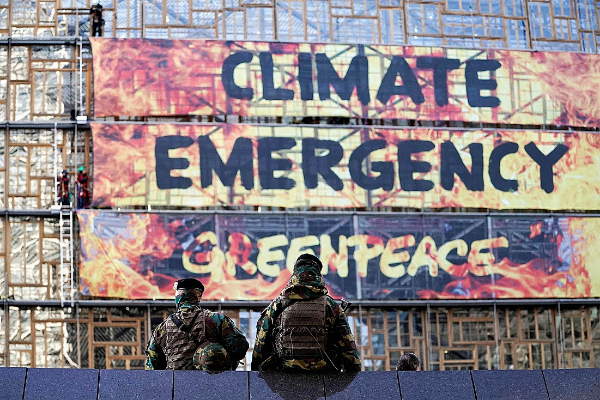- Climate crisis: The European Commission's plan: zero emissions in 2050 and 100,000 million for the economic transition
Everyone knows the implications, the cost of image and reputation of a fiasco in the week in which COP25 ends in Madrid and in which the European Commission has launched its great Green Agreement , but what is at stake is so relevant that in some capitals the risk is perfectly worth it. The Heads of State and Government of the European Union are negotiating this week in Brussels a declaration , only a declaration, but full of symbolism: the commitment of the 28 with a neutrality of emissions in 2050.
The short and simplistic explanation is that 25 countries agree and three (Poland, Czech Republic and Hungary) do not . That 25 saw with good eyes a text of itself quite diluted and generic, which read, in its latest draft, that "in the light of the latest available scientific evidence, and given the need to act, the European Council supports the objective of achieve climate neutrality in the EU by 2050 , in line with the objectives of the Paris Agreement ", but that the other three do not.
For an untrained eye the phrase may seem clear and resounding, but looking at the wording, pure engineering of Brussels , it is found that governments actually support the goal of neutrality, but do not commit to it . And it is not even said that each and every member will achieve it individually.
And yet, in Warsaw, Prague and Budapest the opposition was strong. The three countries, now more concerned with the economic costs of the green transition than with emissions within 30 or 50 years, want two things: cash and sound to mitigate the effects of the shift towards a less polluting economy and the recognition of that the nuclear pathway is acceptable . And that kept the heads of state and government in Brussels on Thursday afternoon and evening.
Going into detail, the situation is complicated. Thus, Germany, Austria or Luxembourg saw room for economic compensation, but they do not trust the nuclear issue at all, which for the Czechs and Hungarians (and the French) is decisive. And Poland wants to accept reductions in the set , but tolerating a 'double speed', which makes the total balance one thing, but does not force the 28 to be at the same point.
A good part of the battle of the last days, which Greenpeace heated on Thursday morning 'occupying' the facade of the building where the leaders meet and displaying a spectacular banner, is precisely to try to close the Summit with a solemn declaration with the one to join the 'green' moment of the week. And the devil is in the nuances. If you put an explicit reference to the nuclear option , as Macron wanted, or if a generic paragraph ("the European Council recognizes the need to guarantee energy security and respect the right of Member States to decide on their energy mix and choose technologies more appropriate ") was sufficient or even acceptable.
Fair Transition Mechanism
"We are clear about what can be made more flexible. But none of that is that I make you more flexible and you tell me later. No, the other way around, you commit to 2050 and then we make it more flexible . As long as it is not unfair help, there is a will for an agreement." , explain sources of Moncloa. What is an unfair help? "It would not make sense that the bulk of the aid is for the retardants and that the most ambitious are not helped," the same sources insist.
The president of the European Commission, Ursula von der Leyen, in her official debut at a Summit, presented her Green Agreement, focusing on the Fair Transition Mechanism that aims to mobilize up to 100,000 million euros with which to help regions and sectors more affected by the change of growth model. But the members of Visegrado want something much more concrete, and link the emission commitments of 2030 (up to 55% less) or 2050 (neutrality) with the negotiations that are open in Brussels on the so-called Multiannual Financial Framework, the Budget of the EU until 2027.
"Hungary is prepared to adhere to the agreement on the EU climate neutrality objective, but we have to prevent the Brussels bureaucrats from making poor countries and poor people end up paying it . We need economic guarantees," Viktor Orban warned. , Hungarian Prime Minister, upon arrival. " Nuclear energy is a clean energy without carbon dioxide emissions and I don't know why many countries have a problem with it ... If we want to achieve climate neutrality we have to understand that each one will have a different energy mix," said the Czech Andrej Babis.
According to the criteria of The Trust Project
Know more- Science and Health
- science
- Climate change
- Environment
- Climate Summit
Climate Crisis Patricia Espinosa: "Mobilization in the streets helps us to activate decision making"
Climate crisis Jordan prepares for a future without water
Madrid Weather Coverage Interview: "Satellites show clear images of climate change"

